|
Here’s how to build a knockout editing portfolio page even if you’re relatively new to the field.
Deciding what to include, what to omit, and how to lay it out so that it grabs a potential client’s attention can be tricky. If your business is new you might not have a lot to shout about. If you’re established, you might have too much.
One thing’s for sure, though – an editing site without a visible portfolio is at a disadvantage. It’s the next best thing to the social proof of a testimonial because it demonstrates that you practise what you preach. Using stories is a method every editor can use to bring their portfolio page to life. Moving from mechanics to emotions Stories are lovely additions to any portfolio page because they give us the opportunity to take our potential clients behind the scenes ... to show them how we helped and how the project made us feel. That’s important because it shifts the attention away from mechanics and towards emotion. Those of us who work with non-publisher clients such as independent authors, academics, businesses and students are asking our clients to take a big leap ... to put their project in the hands of someone they’ve never met, and pay for the privilege. It’s a huge ask and takes not a little courage for some. Think about it from the client’s point of view:
These clients will be looking for an editor they can trust, someone who gets them, understands what their problems are and can solve them without making a song and dance about it. Trust is something that is usually earned over time – think about your friendships and partnerships. Editors and their clients don’t always have the luxury of time. What’s needed is something that will fast-track the growth of trust. Word-of-mouth recommendations are fantastic for this. Testimonials from named clients are also excellent social proof. Portfolios work in the same way. The problem is, they can be boring.
A partial screenshot of my boring but useful list!
The list: boring but powerful I’m not going to suggest you dump your long lists. Boring though they may be, I believe there’s power in them, and for two reasons:
So, if you want to keep your long lists, do so. I have. Make them more accessible and aesthetically pleasing by breaking them into subjects or genres. Add thumbnails of book jackets, journal covers or client logos (subject to securing permission from the client). Use a carousel or slideshow plug-in to show off multiple images without cluttering up the page.
Adding pizzazz with stories
Now it’s time to add the wow factor. Stories take the portfolio one stage further. They’re basically case studies of editing and proofreading in practice. Can you recognize yourself in the following list?
Stories work for all three groups of editors:
What to include It’s up to you what you include but consider the following:
Example 1
I’m a fiction editor who works for a lot of first-time novelists. Many haven’t worked with an editor and don’t know what to expect. Some feel anxious and exposed. My two portfolio stories have a friendly, informal tone. One of my case studies focuses on a self-publishing series author whose fictional world I’ve become close to. By showing how we work together and how his writing makes me feel, I demonstrate my advocacy for self-publishing and the thrill I get from working with indie authors, the emotional connection I make with the characters, and the delight I experience in seeing writers hone their craft.
Two case studies from the editing studio
Example 2
If you work with corporates, your stories might have a reassuring, professional tone that conveys confidence and pragmatism. Your case studies could feature clients whose projects required the management of privacy and confidentiality concerns. You could use the space to talk about the challenges you faced and the successes you and your clients achieved even though the projects were complex and demanding.
Example 3
If you work with publishers, you could create case studies that show how you managed tight deadlines, a controlled brief, and a detailed style guide. The stories could highlight some of the problems you and the publisher overcame, your enthusiasm for the subject area, the pride you felt on seeing the book published, knowing the part you’d played in its publication journey. Crafting stories about relationships If your home page is all about the client, the portfolio page can be all about relationships. By crafting stories for our portfolios, we can invite potential clients onto the stage and let them experience – if only fleetingly – editing in action. And because the case studies are real, they’re a powerful tool for knocking down barriers to trust. They show a client how we might help them, just as we’ve helped others.
Louise Harnby is a line editor, copyeditor and proofreader who specializes in working with crime, mystery, suspense and thriller writers.
She is an Advanced Professional Member of the Chartered Institute of Editing and Proofreading (CIEP), a member of ACES, a Partner Member of The Alliance of Independent Authors (ALLi), and co-hosts The Editing Podcast. Visit her business website at Louise Harnby | Fiction Editor & Proofreader, say hello on Twitter at @LouiseHarnby, connect via Facebook and LinkedIn, and check out her books and courses.
4 Comments
Priya
30/8/2019 12:12:39 pm
thank you so much Louise. This is useful and I feel it is very kind of you to share practical information online for free.
Reply
Louise Harnby
30/8/2019 04:09:10 pm
Cheers, Priya! Glad you found it useful!
Reply
Priya Bhowal
10/5/2020 05:26:20 pm
In the portfolio don't I need to include samples of my work? I'm proofreading and beta reading. The books are not published. How do I showcase my work in these projects? Do I share the beta reading report or one page from the proofread manuscript with the author's permission?
Reply
Louise Harnby
10/5/2020 05:29:49 pm
I don't include samples because my T&Cs state I will treat the material as confidential. If your author gives you permission you can include what you like but that's not what my clients feel comfortable with ... hence the stories approach. My way isn't the only way, it's just my preference!
Reply
Leave a Reply. |
BLOG ALERTSIf you'd like me to email you when a new blog post is available, sign up for blog alerts!
TESTIMONIALSDare Rogers'Louise uses her expertise to hone a story until it's razor sharp, while still allowing the author’s voice to remain dominant.'Jeff Carson'I wholeheartedly recommend her services ... Just don’t hire her when I need her.'J B Turner'Sincere thanks for a beautiful and elegant piece of work. First class.'Ayshe Gemedzhy'What makes her stand out and shine is her ability to immerse herself in your story.'Salt Publishing'A million thanks – your mark-up is perfect, as always.'CATEGORIES
All
ARCHIVES
July 2024
|
|
|
|


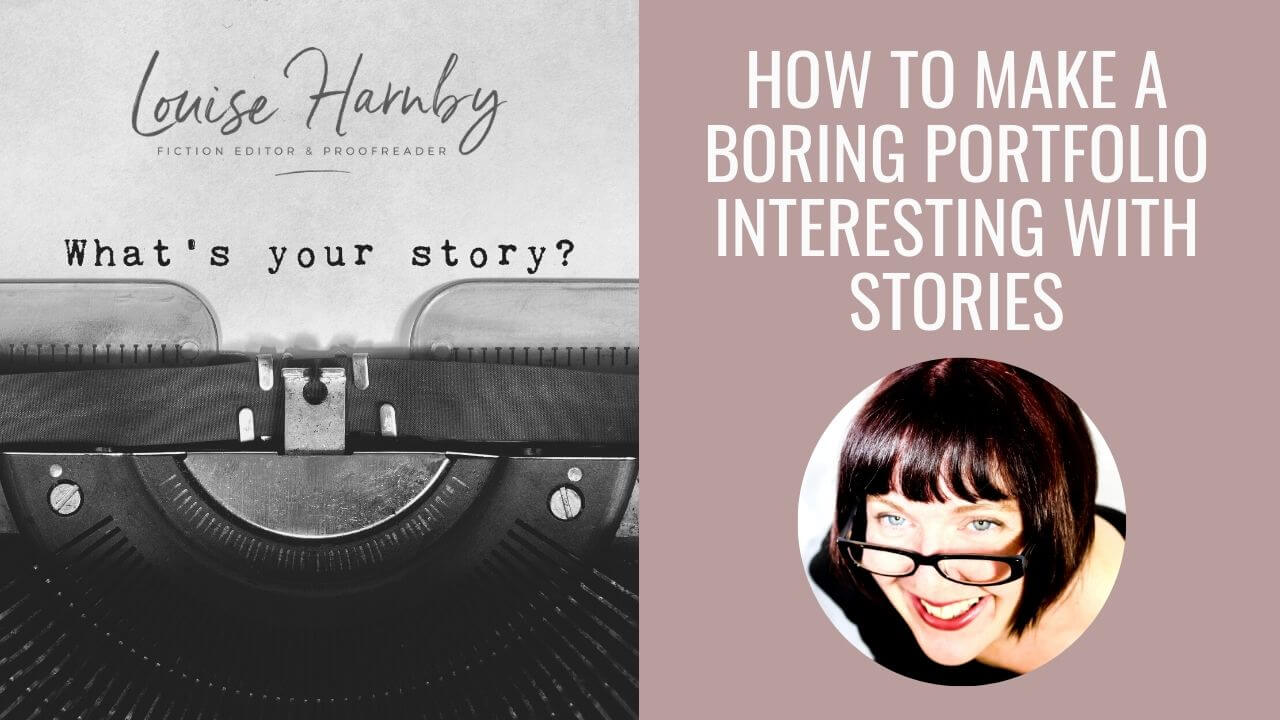
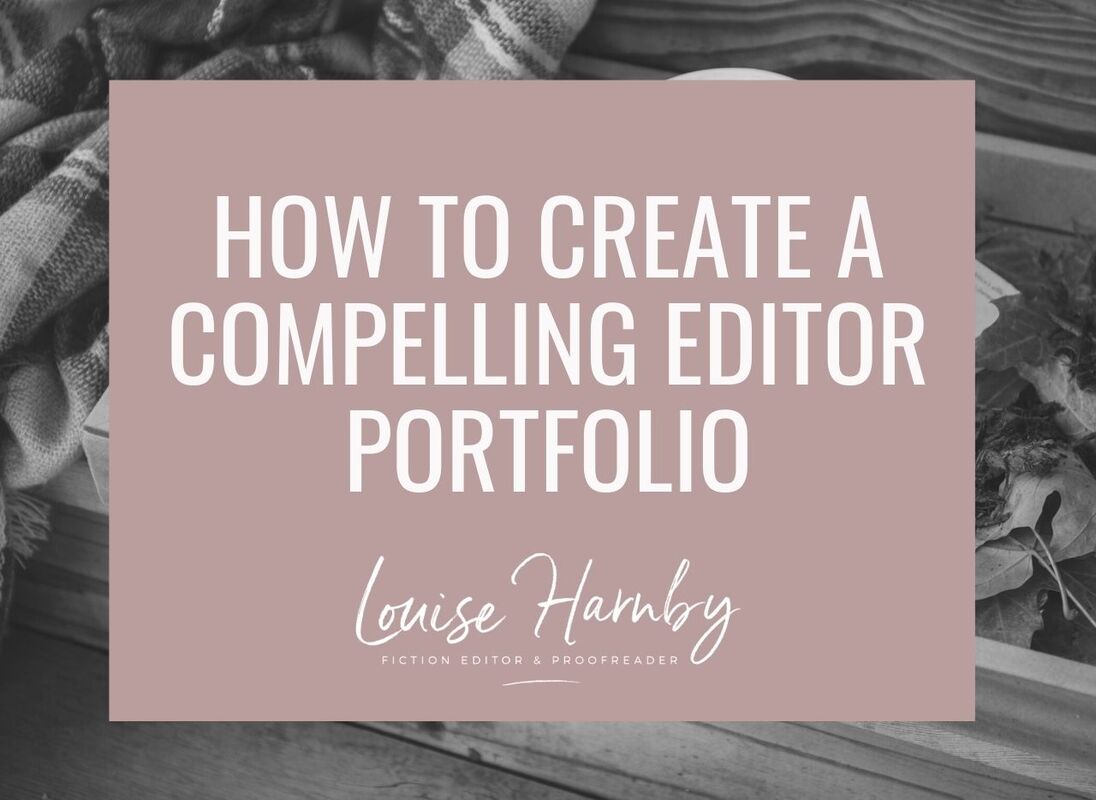
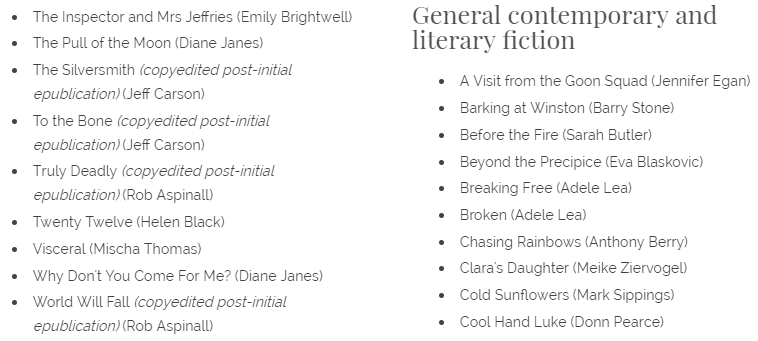
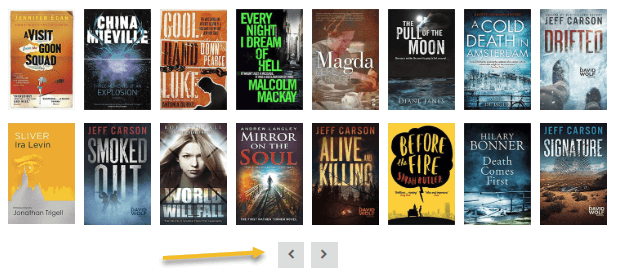
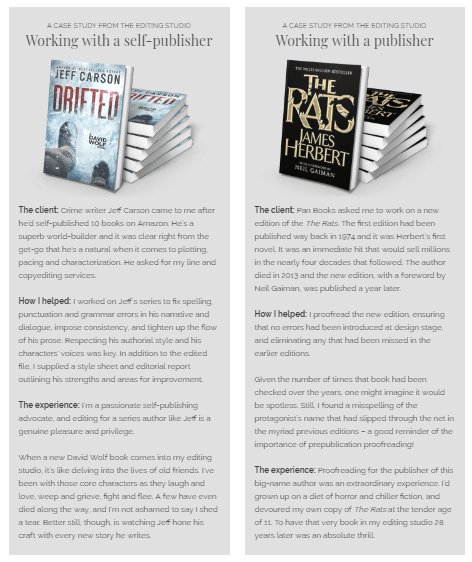













 RSS Feed
RSS Feed





